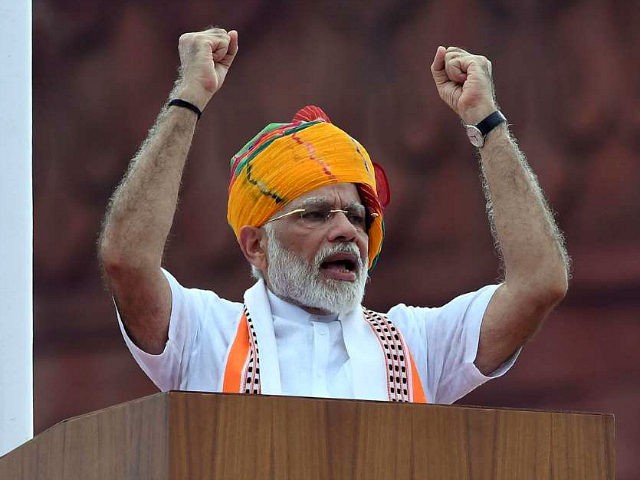India recently said its commitment to the nuclear doctrine of ‘No First Use’ would be contingent upon the developing circumstances in its dispute with China and Pakistan over the Muslim-majority region of Kashmir.
The declaration came days after Beijing, through its state-run Global Times, cautioned of a potential nuclear war over its Kashmir moves.
Any steps taken by a nuclear-armed India to provoke a nuclear-armed Pakistan or a nuclear-armed China are clearly matters which should concern the wider world. In this sense, the threat of such a war is sadly closer than it was just weeks ago.
Both Pakistan and China have warned India’s actions may lead to war.
On August 16, Indian’ Defense Minister Rajnath Singh followed suit, also warning of a potential nuclear war.
He wrote on Twitter that he visited Pokhran, the site of India’s first successful nuclear test in 1998 under former Prime Minister Atal Vajpayee, adding in a different post:
Pokhran is the area which witnessed Atal Ji’s firm resolve to make India a nuclear power and yet remain firmly committed to the doctrine of ‘No First Use.’ India has strictly adhered to this doctrine. What happens in [the] future depends on the circumstances.
Nuclear war threats came after India revoked Indian Kashmir’s limited autonomy and broke the region, including a portion administered by China, into two federally controlled territories, angering Beijing.
Beijing deemed India’s move in Kashmir a violation of its sovereignty despite denials by an Indian official who claimed New Delhi is not seeking to annex additional Chinese Kashmir.
India, however, has said that when it talks about breaking its Kashmir region into two areas controlled by the federal government, it is referring to a portion of China-administered Kashmir (Aksai Chin).
Beijing has warned that India’s actions in Kashmir could trigger a nuclear war.
Nuclear-armed China, its ally Pakistan, and their fellow nuclear power India all have competing claims to territories in the volatile Himalayan region of Kashmir.
A border — the Line of Control (LOC) — divides Muslim-majority Kashmir between Pakistan and India.
Pakistan has ceded control of some of its Kashmir territories to China Meanwhile, India disputes Beijing’s control of an area on its side of the LOC.
Kashmir is one of the most militarized zones in the world. Regular episodes of violence in the region have killed more than 70,000 people since 1989 alone.
Thousands of people have also disappeared in the region. Many others have been tortured and attacked by pellet guns used by Indian forces.
Marking the highest death toll since 2009, the Associated Press (AP) reported that almost 570 people lost their lives in Kashmir last year, including 260 militants, 160 civilians, and 150 Indian security forces.
Despite a 2003 ceasefire between Pakistan and India, the two countries clash along their Kashmir border almost daily.
The confrontations have also displaced tens of thousands people. Pakistan and India have fought two wars over Kashmir. China and India have also engaged in a major military conflict over the region, resulting in Beijing gaining control of territory in Indian Kashmir.
Indian and Pakistan claim ownership of all of Kashmir. However, the region is split between nuclear-armed China, India, and Pakistan.

COMMENTS
Please let us know if you're having issues with commenting.